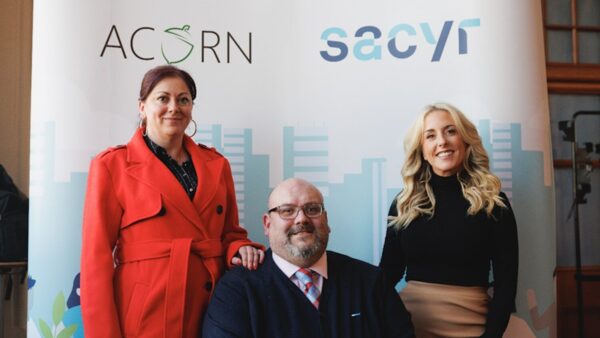
Successful leadership requires an understanding of the relationship between ‘Be’, ‘Do’ and ‘Have’.
I have been in the construction industry for nearly 50 years, the past 25 as a leadership team coach.
I am a student of leadership. I study leaders as they go about getting things done through their people and I read lots of books on the subject.
In the construction industry, we hear about things like skills shortages, low levels of engagement, poor morale, difficulty attracting people into the industry and, when we do, they leave soon after joining.
Projects are late, over budget, unsafe, poor quality, relationships lack trust and, tragically, there is a high male suicide rate.
This is a leadership issue. There is a lack of joined-up leadership across the industry, in business and on projects.
Rising up the hierarchy, I was not prepared for leadership nor were many of the people I have worked with in the past 25 years as a coach
Rising up the hierarchy, I was not prepared for leadership nor were many of the people I have worked with in the past 25 years as a coach.
Instead, they are more prepared for the technicalities of civil engineering and building. Why is this?
Education versus training
If we consider the world 120 years ago, there was a clear distinction between education and training.
Training was about teaching the skills needed to complete a task or perform a function. Education was about developing character and the real skills necessary to live a good life – skills like leadership, communication and ethics.
All of the personal development I see nowadays is focused on technical or statutory training. Now, the words ‘education’ and ‘training’ are used interchangeably as though they mean the same thing.
However, there is very little education, specifically around ‘people’ skills, not even in schools. So, I have set out to provide some, based on my studies and personal experience.
Be, Do, Have – in that order
Character is a representation of your ‘being’ or who you are as a person. Your ‘being’ is why people are prepared to follow you, or not.
And, to be a leader, you need followers.
Let’s dig into your ‘being’, or who you ‘Be’ to understand why that is so important for you as a leader.
Who you ‘Be’ informs what you ‘Do’ and what you do informs what you ‘Have’ in terms of results, achievement and success in life.
Who you ‘Be’ is shaped mostly by your beliefs then your values then your passions, your gifts and voids and then lastly, in this character entry-level list, your wiring. As a coach, I am mostly listening for beliefs and values.
Here’s an example. In one coaching session, a leader said: “It takes a long time and a lot of hard work to trust someone.”
Note: this is a belief, not an absolute truth, nor fact. In his mind, he knows it to be true but can’t prove it – it’s a belief.
I then asked: “As a leader, what are you going to do in the meantime?”
He replied: “I’m probably going to look over their shoulder, spy on them, tell them what to do and how to do it, and then check up on them. I’m going to micromanage them.”
I asked: “If you micromanage them, what are you going to have as a result of that?”
Most leadership teams are about 15% effective. When they get to 40%, they become remarkable
The leader replied: “Disengaged, demotivated and resistant people, and also a frustrating and hard life as a leader. And that is what I have got.”
That’s one example of how what we believe informs what we do, and what we do informs what we ultimately have in terms of results, success and satisfaction.
Scaling up character
What about the character of your team? We now scale this rationale up to leadership teams and boards of directors.
I often ask: “Who do you want to be as a leadership team?” Most are siloed, dysfunctional and ineffective. This is my work – enabling groups of executives to work together and become, or at least begin to be, a joined-up leadership team.
Most leadership teams are about 15% effective. When they get to 40%, they become remarkable – same for their results.
Who they ‘Be’ as a leadership team informs what they ‘Do’, and what they do informs what they ‘Have’ by way of results, success and reputation.
Again, what they believe as a team and their collective values are most influential in terms of how they show up as a team and lead.
And get this – character is a multiplier in teams.
Necessary education
This is necessary education for where we are now, for overcoming skills shortages, improving quality and the things we have been talking about in our industry for the past 50 years. It’s social technology; we already have enough physical technology.
This is my work as a leadership team coach.
Dave Stitt FCIOB is a chartered civil engineer, and professional certified coach at DSA Building Performance.









